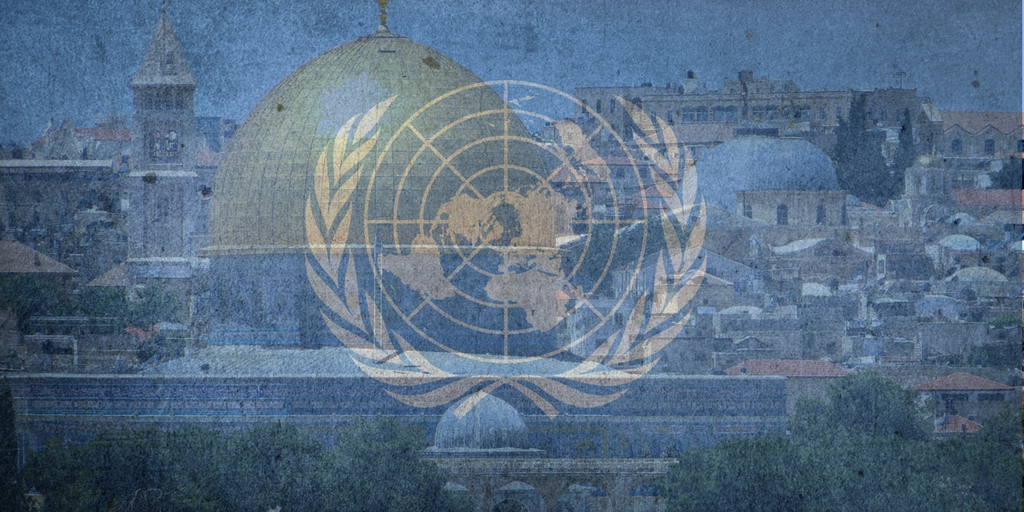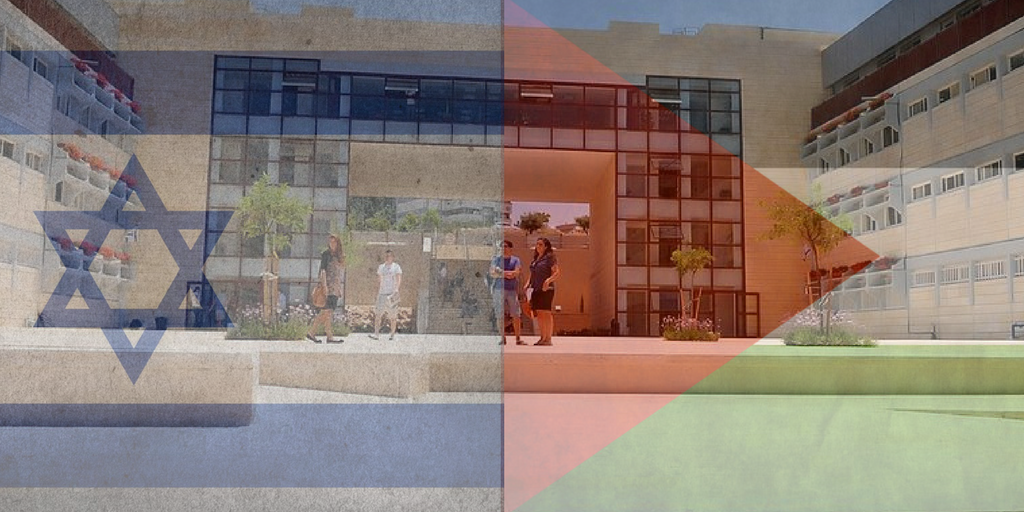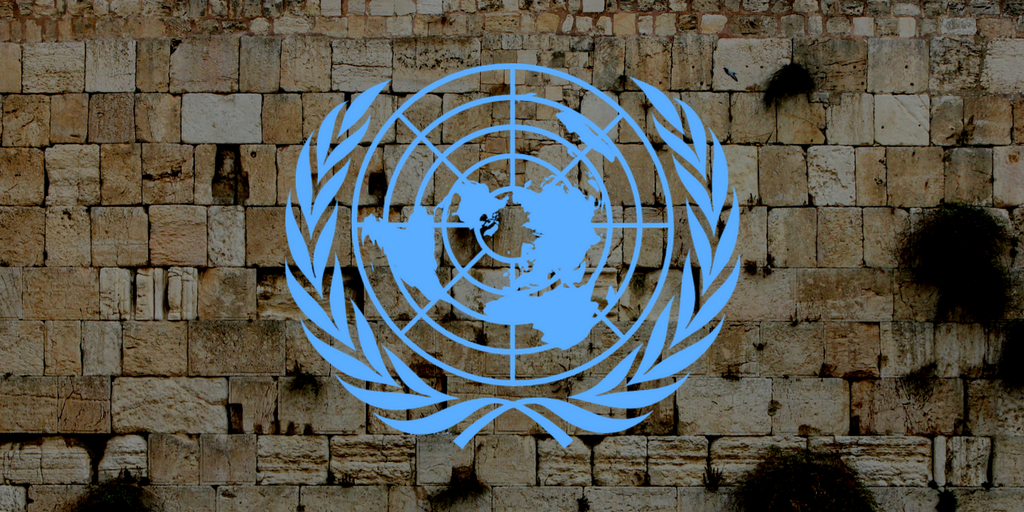BDS is not an attempt to delegitimize Israel, but rather a product of Israel’s delegitimization; it is thus a consequence, rather than a cause, of that delegitimization
The Palestinian narrative claims that the Jews of Israel are colonialist interlopers who stole the land from the Palestinians, its rightful owners. The narrative makes no distinction between Tel Aviv and Hebron. All of Israel is a crime against the Arab world. All of Israel is illegitimate. – Caroline Glick, June 1, 2017.
I recently participated in a rather animated televised debate on the new English language channel, ILTV, dealing with the BDS campaign against Israel.
Given the objective time constraints of such a program, it is inevitable that one cannot fully elaborate on all the points raised in it, or adequately articulate arguments to underpin the positions taken on it. Accordingly, I should like to devote this week’s column to a more detailed, orderly and comprehensive presentation of the issues I broached in that debate.
Sign of a welcome change of attitude?
Late last month, it was announced that the Israeli government had approved a plan to set up a fund of $72 million to counter the ongoing international BDS campaign against Israel. According to this plan, the funds will be allocated to a yet-to-be-established not-for-profit organization whose board will be made up of government officials and donors from abroad, and which will oversee what is reportedly to be the first major “civil-society infrastructure servicing the State of Israel and the pro-Israel community in the fight against the de-legitimization of Israel.”
The planned initiative appears to signal a welcome—and long overdue—change in the hitherto dismissive attitude of Israeli officialdom towards public diplomacy and towards the pernicious effects such disregard was having not only on Israel’s international standing, but also on the predicament it created for pro-Israeli advocates abroad.
This detrimental insensitivity was starkly displayed by none other than the person who ought to have been most alive to it – Israel’s then-incumbent Foreign Minister, Avigdor Liberman, a few years ago, in a regrettable exchange with a young pro-Israeli activist at an international conference in New York.
During question time from the audience, Liberman was asked by a young pro-Israel undergraduate activist (Justin Hayet of Binghamton University): “What is the Foreign Ministry doing to stand with college students, like myself, to fight BDS on campus?”
A small step in the right direction
Dispensing with any semblance of civility, and any expression of encouragement for the voluntary efforts of young pro-Zionist activists in defense of Israel on hostile campuses, Liberman brusquely conveyed to him that endeavors like his were essentially unnecessary, and largely a waste of time—since, according to the then-Foreign Minister, BDS should not be a great source of concern for Israel. (For Hayet’s impassioned and dismayed response – see here)
Liberman’s response was, of course, disturbing and, as I wrote back then: “it encapsulated all the misperceptions, and mismanagement that have characterized Israel’s diplomatic strategy. In particular, it spotlighted the incomprehension and incompetence Israeli officialdom has displayed in the conduct of our public diplomacy, going a long way to explain Israel’s growing international beleaguerment.”
Accordingly, the newly announced initiative appears, overall, to be a step in the right direction, and seemingly heralds a refreshing, new awareness of the vital importance of public diplomacy in the nation’s strategic arsenal.
Indeed, in some aspects it resembles—albeit on a far smaller scale—measures I have long advocated.
Almost half a decade ago, I called for setting up an extra-ministerial “national authority for the conduct of strategic diplomacy” which would “interface with Zionist NGOs and help finance their pro-Israel activities, enhance their impact and expand their reach – as a counterweight to the massive funding that post- and anti-Zionist NGOs receive from foreign governments”.
Moreover, given the strategic importance and urgency of enhancing Israel’s public diplomacy performance, I urged assigning 1% of the state budget (then $1 billion, now considerably more) for this purpose annually —far more (almost ten-fold!) than the budget planned for the newly envisaged entity.
“Intellectual warriors, not slicker diplomats”
In broad brush strokes, I set out the kind of activities, with which this strategic diplomacy authority would be tasked, and for which the prescribed budget would be utilized.
- Its activities would be assertively offensive, geared to uncompromisingly attacking and exposing the mendacious and malicious nature of Israel’s adversaries – a necessary condition for international understanding of Israel’s policy imperatives.
- Its staff would not be professional diplomats but articulate and committed intellectual ideologues, neither bound by the constraints of diplomatic protocol nor versed in the niceties of diplomatic etiquette but rather adept in the mechanism of mass media, cyberspace and social networks (see my “Intellectual warriors, not slicker diplomats”).
- Their task would not be to interact with foreign counterparts but to wage diplomatic warfare, at home and abroad, with a $1bill. budget at their disposal to saturate the Web with polished, professional Zionist content – on Facebook, Twitter, YouTube, and by means of full-page “infomercials” in the leading printed media.”
In this, there is a fair amount of overlap between my prescription and the reportedly planned operation of the nascent anti-BDS non-profit initiative.
There are, however, some important differences—apart from those of scale—between the two proposals. These relate to substantive issues of scope, focus and ongoing proactivity.
Focusing on the symptoms, not the sickness
According to press reports, the creators of the planned entity envisage it operating on “a regular basis to counter pressure applied to artists, performers and commercial enterprises not to engage with Israel. But it would shift into high gear at sensitive periods such as fighting, waves of terrorist attacks, and anti-Israel votes at international forums”
Clearly, then, it would appear that the nature of the planned operation will be essentially reactive, rather than proactive, designed almost exclusively to deal with –i.e. rebuff, negate, discredit—BDS-related attacks against Israel, with the level of intensity of such activities determined by largely exogenous events such as hostile military or diplomatic offensives against Israel.
These are grave shortcomings, which are liable to seriously undercut the efficacy of the prospective initiative—for two different, but interrelated, reasons, the one substantive, the other methodological.
The first of these relates to the restriction of the focus to BDS related activity. In many ways, this is like focusing on the symptoms of an illness, rather than on its origins, in search of a remedy. Sadly, it is likely to be just as ineffective.
For what is crucial to realize is that, in essence, BDS is not an attempt to delegitimize Israel, but rather a product of Israel’s delegitimization. In other words, it is a consequence, rather than a cause of that delegitimization.
Two incompatible narratives
On reflection, this should be an almost self-evident truth. After all, if Israel was perceived internationally as legitimate, anything remotely resembling the BDS campaign against it would be inconceivable.
Accordingly, without contending with the underlying sources of the delegitimization of Israel as the nation-state of the Jewish people, there is little hope of effectively stifling the impulses that give rise to phenomena such as the BDS movement.
In this regard, it is crucial to grasp two things:
The first is, as Caroline Glick alludes to in the introductory excerpt above, the Palestinian narrative and the Zionist narrative are, for all intents and purposes, inconsistent with each other. In other words, they are mutually exclusive narratives.
Accordingly, enhancing the legitimacy of one necessarily implies undermining the legitimacy of the other. (For a more detailed elaboration of this matter see Deciphering delegitimization).
The second is that it is the Palestinian narrative, and its perceived legitimacy that underpins the legitimacy of the claim for Palestinian statehood. In other words, undermining the legitimacy of the Palestinian narrative undermines the validity of the claim for Palestinian statehood.
Thus, as I have argued elsewhere, “for the notion of a secure Israel [as the nation-state of the Jews] to regain legitimacy, the notion of a Palestinian state must be discredited and removed from the discourse as a possible means of resolving the Israeli-Arab conflict.”
A viable Israel as “occupation”
But the converse is also true: As long as the Palestinian narrative is perceived as legitimate—and, hence, the claim for Palestinian statehood is seen as valid—the legitimacy of a secure Israel will always be challenged—and hence vulnerable to measures that arise from that challenge, such as the BDS campaign.,
For those who find this too disturbingly adversarial to accept, I would refer them to an article authored by Omar Dajani and Ezzedine Fishere, published in the prestigious “Foreign Affairs” and entitled “The Myth of Defensible Borders”. In it, the authors – an adviser to the Palestinian negotiating team and an adviser to the then-Egyptian foreign minister, respectively—write, not without significant justification: “A policy of defensible borders would… perpetuate the current sources of Palestinian insecurity, further delegitimizing an agreement in the public’s eyes…”
They therefore conclude “… Palestinians are likely to regard defensible borders as little more than occupation by another name.”
Consequently, for any settlement to be perceived as legitimate in the eyes of the Palestinian public, Israel must resign itself to being indefensible—as claims for it to be defensible (i.e. viable) would delegitimize it as an occupier!
Thus, as I pointed out in The political algorithms of the Arab Israeli conflict, there is a chain of algorithmic-like reasoning, which inexorably demonstrates that Israel’s acceptance of the legitimacy of Palestinian national claims has, in effect, laid the foundations for the assault on its own legitimacy.
An inconvenient, but inevitable, conclusion
The architects of any anti-BDS enterprise will ignore this reasoning at the peril of fatally undermining the success of their endeavor.
For as long as the Palestinian-Arabs are perceived as having a legitimate claim to statehood, any counterclaim by Israel to ensure its viability will be perceived as thwarting that claim –thereby, ipso facto, delegitimizing such counterclaims—and, hence, exposing the very legitimacy of the notion of a viable Israel to attack—such as the BDS initiative.
Accordingly, just as focusing on reducing the temperature of a patient suffering from a severe infection will not cure that infection, so focusing on BDS will not remedy the delegitimization drive against Israel. Just as the source of the infection must be diagnosed and treated, so must the sources of the delegitimization of Israel.
Clearly then, if the Palestinian narrative is diagnosed as the source of the de-legitimization of the Zionist narrative, then the re-legitimization of the latter calls for the de-legitimization of the former. No amount of politically-correct gobbledygook, decrying such a stark “zero-sum” assessment, can obscure this inconvenient, but inevitable, conclusion.
The operational implications of this are clear.
The BDS campaign is not—and cannot—be treated as a “stand alone” problem. To eradicate it, one must eradicate its root causes—and since the roots of BDS sprout from the delegitimization of the Zionist narrative, the causes of this delegitimization must be eradicated. However, as the delegitimization of the Zionist narrative can be traced to the legitimization of the incompatible, mutually exclusive Palestinian narrative, the unavoidable imperative is that for any anti-BDS initiative to be successful in the long run, it must focus efforts on the discrediting and delegitimizing of the Palestinian narrative.
Expose mendacious myths underpinning a fallacious narrative
Accordingly, any successful long term anti-BDS strategy cannot confine itself to responding to manifestations of anti-Israel calls for boycotts, sanctions or divestment—however infuriating these might be, and however telling such responses may be.
It must go on a genuine, proactive offensive against the primary sources of those calls—by resolutely and relentless exposing the mendacious myths that underpin the fallacious Palestinian narrative, while highlighting how these contrast with the fact-based foundations of the Zionist narrative.
After all, if the Palestinian narrative is discredited and delegitimized, who would want to instigate boycotts, sanctions or divestments in order to endorse or promote it?






